

Tao Te Ching
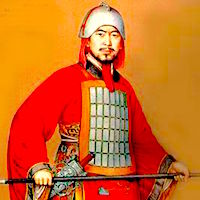
Western Zhou 西周 (1046 – 771 BCE)
Western Zhou 西周 (1046 – 771 BCE)
In the 11th century BCE, the Zhou—one of the neighboring states conquered by the Shang Dynasty—led an alliance that overthrow the Shang and justified the rebellion by asserting that the Shang became corrupt and lost “The Mandate of Heaven.” This Mandate of Heaven doctrine became their main religious belief principle and was used to justify regime change throughout Chinese history. After establishing China’s first permanent political capital in Xian, the Zhou then set in motion Chinese cultural changes that have lasted over 3000 years. Their military success and rapid expansion however led to a period of political fragmentation, war, and chaos. Because of the rapid expansion, they delegated power to distant leaders who passed on their positions to sons who gained more and more power eventually rebelling and creating a centuries-long period of warfare, instability, and chaos.
Sages (8)
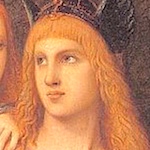
Hesiod
846 – 777 BCE
“History’s first economist”
Called “history’s first economist,” farm hand, singer, epic poet of the people; Hesiod used his poetry to paint and establish religious customs, Greek mythology, good farming practices, and a foundation for the poor to overturn the injustices and inequality of the kings and aristocracy. He protested against injustice, furthered the understanding of astronomy and time keeping, the economics of sea trade, and gave meaningfulness to creativity and hard work. While Homer extolled the hero, the rich and powerful; Hesiod championed the working classes and the common person (though not women).

Homer
850 BCE - ?
Primogenitor of Western culture
Called by Plato the “first teacher” and "leader of Greek culture,” Homer spread an immense influence over all Western culture. A blind bard prophet, his books the Iliad and Odyssey represent the first European literature as well as one of the main influences that shaped Western culture. The “Greek Bible,” these books taught the best behavior for almost any situation with true and timeless images of human goodness and wisdom. Describing the most enduring legends known to the Western world, these universal themes inspire and enlighten.
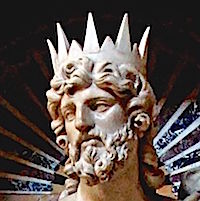
King David
1000 – 920 BCE
"The baffled king composing Hallelujah!"
King David דָּוִד (fl. c. 1000 BCE)
Possibly fictional but in any case powerful symbol of an ideal king and political leader, David. a shepherd, began his public life as a musician with a "secret chord" that chased away an evil spirit possessing King Saul. Leonard Cohen described him as “the baffled king composing Hallelujah!’ and Bonoas ‘the first God heckler’ and his shouting of 'Why hast thou forsaken me?’ as ‘the beginning of the blues.’ Israel's greatest poet and warrior, famous for success in his defeat of the giant, Goliath; he also became infamous for his infatuation with Bathsheba and the corrupting influence of forbidden pleasure that led to adultery and murder but also to the birth of Solomon.
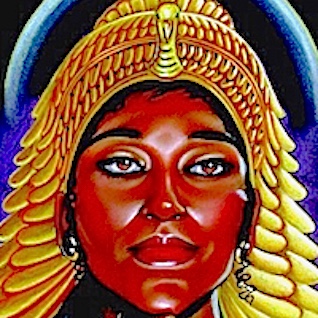
Makeda, Queen of Sheba (Bilkis, Rainha de Sabá)
10th C. BCE
Embodiment of Divine Wisdom
Viewed as the embodiment of Divine Wisdom in the Kabbalistic and mystical Christian traditions, immortalized in the Hebrew Bible and the Muslim Koran, in Persia considered a daughter of a Chinese king and a fairy spirit, part of the founding myths for the modern states of Israel and Ethiopia; Makeda is the first person referred to as Queen in the Bible and ruled over Upper Egypt, Ethiopia, and parts of Arabia. Extremely wealthy and known as a wise prophetess, she challenged Solomon’s wisdom and later had his son, Menelk who became the first emperor of Ethiopia.
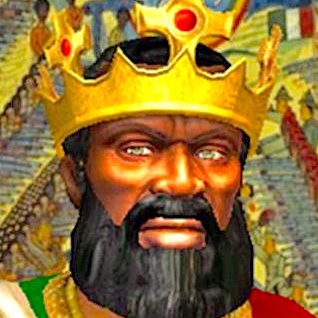
Menelik I (Ebna la-Hakim, "Son of the Wise")
c. 900-820 BCE
First Jewish Emperor of Ethiopia
According to traditional sources and memorialized in the Bible’s the Song of Songs, Menelik was the son of King Solomon of ancient Israel and Makeda, Queen of Sheba. Solomon wanted Menelik to rule Israel after him but instead (with Solomon’s blessings) he secretly brought the Ark of the Covenant (symbol of alliance between the two races, white and black) to Ethiopia where it remains today in Aksum. This made Ethiopia “God's chosen country” and established Menelik as the first Jewish Emperor of Ethiopia and founder of the Solomonic dynasty that ruled Ethiopia for almost 3000 years, includes the Magi said to have visited the manger at Jesus’s birth, and continued until the fall of Emperor Haile Selassie in 1974 when it transformed into the Rastafari movement, the Lion of Judah as symbol of black pride, and the mythology of Bob Marley.
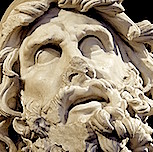
Odysseus Ὀδυσσεύς (Ulysses)
c. 1100 BCE
Trickster lineage hero and symbol
Cultural hero to the Greeks and respected for his cunning and strategy, Odysseus was reviled by the Romans as deceitful and without honor for not maintaining strict adherence to rules and ‘duty.’ Christians dismissed him and Dante relegated him to the lowest level of hell. He became a legendary Greek king and hero of Homer’s The Odyssey and a powerful symbol in the Trickster lineage. Stories of his successful guile, his brilliant solutions to problems, his courageous willingness to—for a good cause—go beyond conventions, norms, and chauvinistic beliefs for the greater good. Representing cultural themes long before Homer personified the Odysseus archetype, this imagery continues in the modern world in works by Tennyson, Kazantzakis, James Joyce, Virginia Woolf, Margaret Atwood, Susanne Vega, and the Coen brothers.
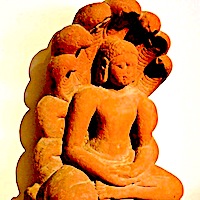
Parshvanatha
872 – 772 BCE
Earliest historical Jain saint
23rd described and earliest historical Jain tirthankaras (savior/saint teachers), Parshvanatha—like the Buddha—was born to a king and queen but renounced the world’s fame and fortune in favor of a life dedicated to spiritual discovery. His realizations and teachings became not only a major influence on the Jain tradition; but also, Indian philosophy in general. The core of his teachings emphasized understanding the cause-and-effect principles of karma and samsara while practicing non-violence and asceticism. His statures usually have a serpent hood over his head or snakes sprouting out of his shoulders. According to Joseph Campbell, snakes in this context are a symbol for life and represent letting go of habitual patterns, beliefs, and prejudice like a snake discards its skin.
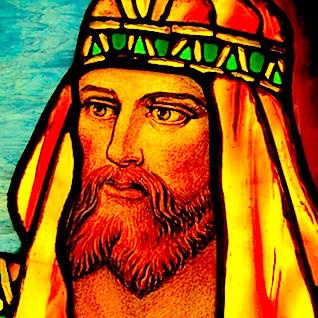
Solomon (Jedidiah)
990 – 931 BCE
Magician, exorcist, great prophet of Judaism and Islam
Wealthy and wise king of Israel, son of David, builder of the First Temple in Jerusalem; Solomon – known as a great prophet in both Judaism and Islam, a "Righteous Prophet and King" in the Eastern Orthodox Church, and a great hero in Freemasonry – is not without his detractors for following foreign traditions and marrying foreign wives including a Pharaoh's daughter and Naamah, the only foreigner Queens Mother of Israel or Judah. His openness, wisdom and refusal to fixate on dogmatic orthodoxy invites him to this list. His renown as magician and exorcist include famous legends like the One Thousand and One Nights’ genie sealed in a bottle with his Seal.
Chinese Eras
Xia Dynasty 夏 (2100 – 1600 BCE)
Shang Dynasty 殷代 (1600 – 1046 BCE)
Western Zhou 西周 (1046 – 771 BCE)
Eastern Zhou 東周 (770 – 256 BCE)
Spring and Autumn period 春秋时代 (770 – 476 BCE)
Warring States period 春秋时代 (476 – 221 BCE)
Qin Dynasty 秦朝 (221 – 206 BCE)
Three Kingdoms 三國時代 (220 – 280 CE)
Southern and Northern 南北朝 (420 – 589 CE)
Tang Dynasty 唐朝 (618 – 907 CE)
5 Dynasties 10 Kingdoms (907 – 960 CE)
5 Kingdom of Dali 大理国 (937 – 1253 CE)
Western Xia 西夏 (1038 – 1227 CE)
Southern Song (1127 – 1279 CE)
Comments (0)